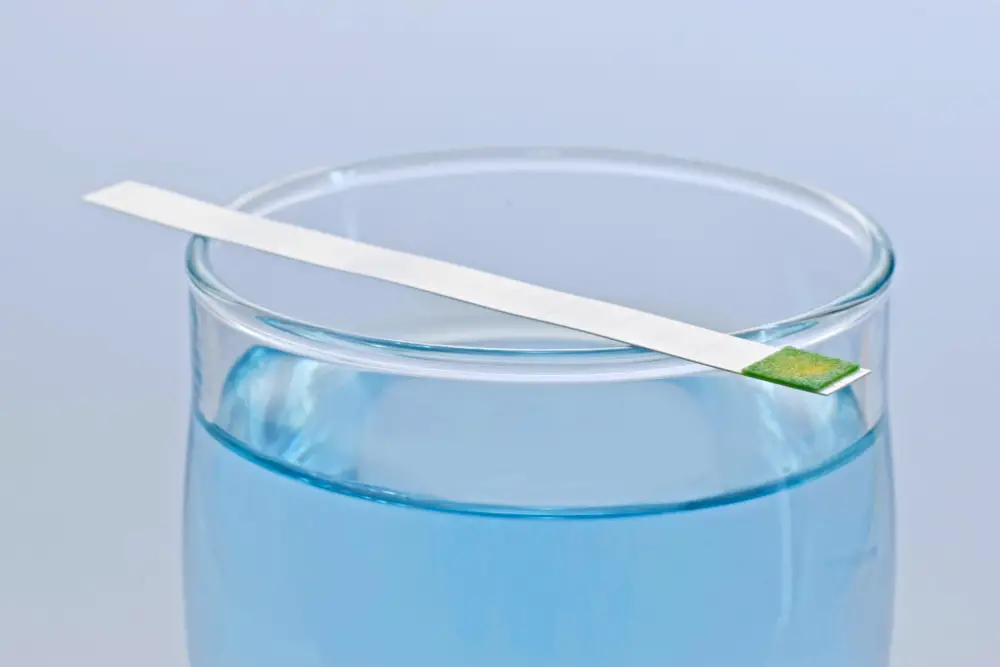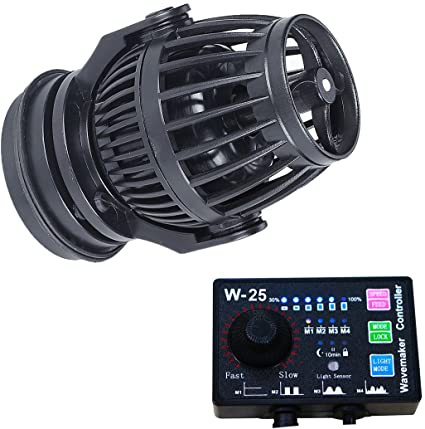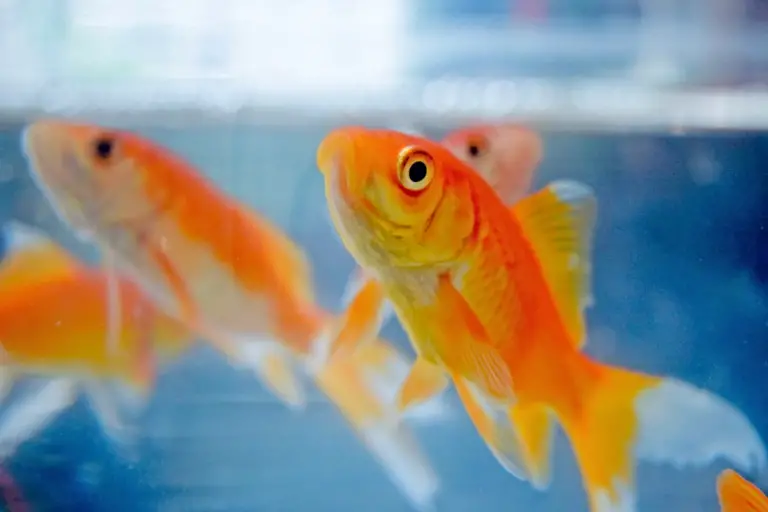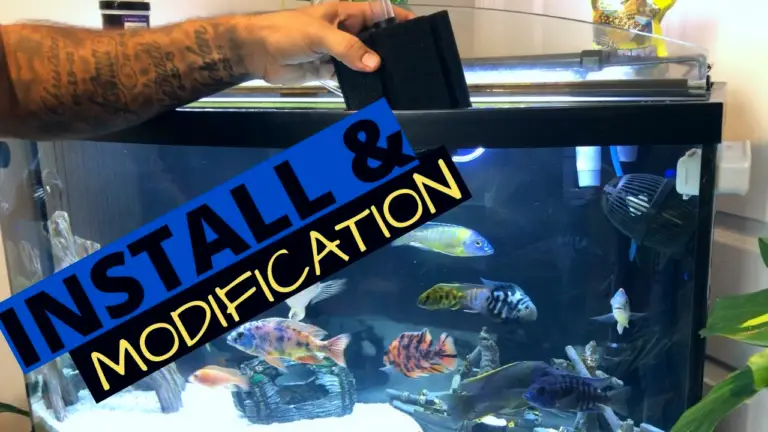Aquarium Water Hardness 101
Ever wondered why your aquatic pals seem happier in certain water conditions? It all boils down to this concept — aquarium water hardness. It refers to the mineral content in your tank, affecting the water’s texture and your fish’s well-being.
But don’t worry, understanding and managing this hardness isn’t rocket science — it’s the secret sauce for healthy, happy fish! Join us as we uncover this aquatic mystery and unlock the key to your finned friends’ ultimate comfort.
What Is Water Hardness?
Water hardness is the concentration of minerals — particularly calcium and magnesium ions — in water. It’s typically categorized into two types: 1) general hardness (GH) and 2) carbonate hardness (KH).
General Hardness (GH)
Imagine GH as your aquarium’s mineral makeup. It’s all about those essential minerals dissolved in water — like calcium and magnesium — that influence your finned buddies’ health.
GH matters because it impacts how fish regulate their bodily functions — from osmoregulation to overall well-being. Too low GH can stress your fish, while excessive levels might lead to breeding difficulties or even scale buildup on tank surfaces.
Carbonate Hardness (KH)
Now, let’s talk about KH. KH is the water’s buffering capacity against pH changes. Think of it as your tank’s natural defense mechanism against pH swings.
Maintaining a good KH level helps prevent sudden pH spikes or drops, creating a more stable and fish-friendly environment.
Does Water Hardness Really Matter?
In short, yes! Picture this: your fish aren’t just swimming around in water but they’re living in their entire world — and the quality of that world matters. Aquarium water hardness is a crucial factor in your fish’s health and happiness.
Here’s the scoop: fish come from diverse natural habitats, each with its specific water characteristics. Matching these conditions in your tank — including the right water hardness — ensures your fish feel at home. It affects their ability to breathe, their growth, and even their ability to reproduce.
How Does Water Hardness Affect Fish?
Fish are like Goldilocks — they need everything just right. Water hardness plays a crucial role in their world, affecting how their bodies work and how they behave. Imagine swimming in water that feels like thick syrup or as light as air. Crazy, right? That’s what extreme hardness levels can feel like for fish — uncomfortable and challenging to navigate.
Different species have their preferences. Some are hardy souls, adapting to various water hardness levels like champs. Others are pickier, thriving in specific conditions like they’re in their version of paradise. Messing with the water hardness can stress them out, impacting their health and behavior.
How to Measure Your Water Chemistry

Test kits, your underwater lab buddies, usually contain test tubes, droppers, and solutions that reveal your water’s chemistry.
For the hardness exam, you’ll often encounter test strips or liquid tests. The strip method is like a mini-dipstick — just dip it in your tank water and watch the colors change. Liquid tests involve adding specific drops to a water sample and observing color changes.
Regular testing is like your aquarium’s doctor’s appointment — do it often! It helps you catch any funky water chemistry before it turns into a fishy emergency. Aim for a routine check-up every couple of weeks to keep those water parameters in check.
Reading the Results
Alright, you’ve run your water hardness test and got those color changes or numbers staring back at you. But what does it all mean?
For GH, lower values indicate softer water, while higher readings mean it’s harder than a fish’s preferred spa day. For KH, lower levels might spell pH rollercoasters, while higher values act like pH bodyguards, keeping things steady.
Think of it this way — aim for a balanced reading that suits your specific fishy crew.
What Fish Are Good For Hard (And Soft) Water?
The key factors influencing a fish’s preference for water hardness include their biological makeup, tolerance to specific mineral concentrations, and how well they can regulate their internal systems in response to varying water conditions.
When replicating these natural conditions in an aquarium, understanding and mimicking the preferred water hardness helps maintain the health and well-being of the fish in captivity.
Hard Water Fish Species
Hard water contains higher levels of minerals like calcium and magnesium, which some species have evolved to thrive in. These minerals affect osmoregulation, the process by which fish balance the intake and release of water and salts within their bodies.
Fish adapted to hard water have developed physiological mechanisms to regulate their internal balance in these mineral-rich environments. These fish include:

- African Cichlids: These vibrant swimmers adore hard water setups. Their striking colors and unique personalities light up any tank. Just keep an eye on their territorial tendencies.
- Livebearers (Guppies, Mollies, Platies): These cheerful buddies thrive in harder water and come in a rainbow of colors. They’re a great choice for beginners due to their adaptability and active nature.
- Rainbowfish: These lively swimmers bring a spectrum of colors to your tank and thrive in harder water conditions. They’re peaceful and active, perfect for community setups.
- Swordtails: Known for their distinct sword-like tails, these fish are hardy and adaptable, making them ideal for beginners. They appreciate the harder water parameters and add a touch of elegance to your aquarium.
Soft Water Fish Species
Soft water contains lower mineral content and tends to be more acidic. Fish adapted to these conditions have evolved to handle lower mineral concentrations and are often found in habitats like blackwater streams or rainforest environments.
Their bodies have adapted to function optimally in these softer, less mineral-rich conditions. These fish include:

- Discus Fish: These beauties are soft water aficionados, requiring specific care but rewarding with their stunning appearance and social behavior.
- Tetras (Neon, Cardinal, Ember): Known for their dazzling hues, tetras prefer softer water. They’re peaceful community fish, adding a touch of elegance to your tank.
- Angelfish: With their graceful fins and majestic appearance, angelfish prefer softer water. They do well in spacious tanks and can become the centerpiece of your aquatic display.
- Betta Fish (Siamese Fighting Fish): Betta fish are stunning and have vibrant personalities. They prefer slightly acidic, softer water conditions, and their colorful fins make them a popular choice for solo tanks.
How To Change Your Water Hardness
Aquarists might adjust water hardness to mimic specific natural habitats where their fish species originate, ensuring optimal health and breeding conditions. Changing hardness can also help address compatibility issues between fish species with different hardness preferences sharing the same tank. Here’s how you change aquarium hardness levels.
Increasing Your Water Hardness
To amp up the hardness, you can add mineral-rich substances like crushed coral, limestone, or aragonite to your filter or directly into the tank. These act like mineral boosters, gradually increasing hardness. Remember, small additions at a time help maintain stability — think of it as sprinkling fish-friendly vitamins!
To keep things steady, avoid sudden changes. Regular water changes with water that matches your desired hardness level will help maintain a consistent environment for your aquatic pals.
Decreasing Your Water Hardness
For softer water, consider using peat moss or driftwood in your tank. These natural softeners can gradually reduce hardness by releasing organic compounds that alter mineral content. Another trick is to use reverse osmosis (RO) water mixed with your tap water, gradually diluting the mineral concentration.
When softening, slow and steady wins the race! Sudden changes can stress out your fish, so opt for gradual adjustments over time to give your aquatic buddies a smooth transition.
FAQs About Aquarium Water Hardness
Curious about the ins and outs of water hardness? Here’s a little rapid fire of questions and answers!

1. What Causes Water Hardness In Aquariums?
Water hardness in aquariums mainly arises from dissolved minerals like calcium and magnesium. Substrate materials like limestone or certain rocks can gradually release these minerals into the water, influencing its hardness.
2. Does Aquarium Water Hardness Matter?
Absolutely! Water hardness directly impacts your fish and plants’ well-being. It affects fish health, breeding, and the overall stability of your aquatic ecosystem. Think of it as creating a comfy home for your underwater buddies!
3. What Should Water Hardness Be For An Aquarium?
Ideal hardness levels vary based on fish species, but as a rule of thumb, GH between 150-300 ppm is a good starting point. However, some fish, like African cichlids, prefer higher levels, while others, like tetras, thrive in softer waters.
4. Additional Considerations for Maintaining Water Hardness?
Regular water changes are key! They help keep things stable and prevent hardness levels from fluctuating too much. Also, additives like crushed coral or driftwood can help maintain or adjust hardness based on your fishy friends’ preferences.
5. Does Water Hardness Affect Aquarium Fish?
Absolutely! Water hardness impacts fish health, affecting their immune systems, growth, and even breeding behaviors. Ensuring the right hardness levels is like giving them the perfect aquatic spa treatment for their overall well-being!
Diving Deeper With Aquabuildr!
As we wrap up, let’s recap the splashy highlights. From understanding the impact of water hardness on fish health to learning how to measure and adjust those crucial parameters, you’re on your way to becoming an aquarium pro!
But why stop here? Explore further with Aquabuildr — the ultimate fish-keeping sidekick! This brand-new app’s intelligent algorithm guides you through building your dream tank, ensuring optimal conditions for your finned friends. From customized tank setups to ready-made options, Aquabuildr has your back! Download the app from the App Store for a seamless, fun, and informed fish-keeping experience. Let’s dive into the Aquabuildr adventure together!
Download the app on the Google Play Store or Apple App Store for FREE, and let Aquabuildr be your guiding neighbor in the aquatic world.
-
Aquarium Water Hardness 101
Dive into the ABCs of aquarium water hardness! Explore its importance and get fin-tastic insights with KaveMan Aquatics!








